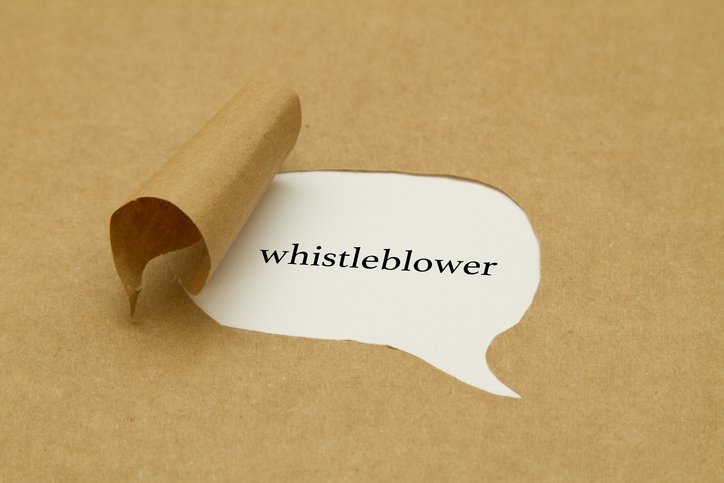Who or what is a Whistle-blower? Various dictionaries offer the definition as:
“a person who informs on a person or organisation regarded as engaging in an unlawful or immoral activity.”
Those who have engaged in whistle-blowing have often been subjected to retaliation. The Public Interest Disclosure Act 1998 was introduced as protection for individuals who had disclosed information about wrong-doings. However, the protection provided by law is all too often inadequate or ineffective when applied. The result of this lack of protection was that an all part parliamentary group was set up with the aim of improving protection.
The All Party Parliamentary Group (APPG) has made a promise to:
“…work to identify where the law adequately fails to protect whistleblowers and, work with industry experts, whistleblowers, regulators and businesses, to recommend positive, effective and practical proposals for change. We are not only aiming to change the current legislation but also the culture and perception of whistleblowers through the work of this APPG.”
In his introduction to the July 2019 APPG report Whistleblowing - The Personal Cost of Doing the Right Thing and the Cost to Society of Ignoring it Stephen Kerr MP APPG Chair said:
“This report shines a light on a culture that too often supports the covering up of wrongdoing and the penalising of whistleblowers. With increasing focus on organisational culture and new global laws and regulations to support transparency and whistleblowers, the UK needs a comprehensive, transparent and accessible framework and an organisation that will support whistleblowers and whistleblowing.”
Gosport Memorial Hospital is a prime example of where whistleblowers had been ignored and silenced. Had they been taken note of the likelihood is many lives would have been saved. When reviewing media coverage it is seen that the hospital had, had a high profile in the news media for quite some time. This just serves to highlight that a reputation of an organisation or business is more important than taking note of wrong-doings.
With this and many other cases reviewed and whistleblowers spoken to the APPG made recommendations that Stephen Kerr MP hoped would “shape the future of not only workers but all citizens by proposing and Independent Office for the Whistleblower that will transform the way both society and organisations react to whistleblowing.”
APPG Recommendations – The 10 Point Plan
“1. The term ‘whistleblower’ must be defined in law.
2. The legal definition of whistleblowing should be revised and include any harmful violation of integrity and ethics, even when not criminal or illegal. The focus should be on the harm (or risk of harm) to public.
3. Whistleblower protection should include all members of the public and include protection against retaliation.
4. Mandatory Internal and external reporting mechanisms and protections should be adopted to include meaningful penalties for those who fail to meet the requirements across all sectors to include those currently outside of the regulations, e.g. journalists and clergy.
5. A further review of compensation and how it is calculated.
6. An urgent review of the barriers to justice including access to legal aid and an introduction of measures to tackle inequality of arms including protection against costs.
7. Non-disclosure agreements in whistleblowing cases must be banned.
8. Better regulatory framework and coordination to include the introduction of international best practice and a public awareness campaign.
9. There should be an urgent review of the prescribed persons list, a more comprehensive guide to their role and measures put in place to ensure that they fulfil their responsibilities.
10. The introduction and establishment of an Independent Office for the Whistleblower with real power to; set standards, enforce the protections, and administer meaningful penalties to not only organisations but individuals within organisations.”
The report also recognises that, there are those who engage in vexatious or malicious reporting, which is not just detrimental to a business but also to those who are genuinely ‘Doing the Right Thing’. In the report, APPG make it clear that those who engage in such activities should not or be able to take advantage of the protection of the law. Not only that, but the law should be strengthened to protect those who are acting genuinely in good faith, also workers and employers who have been subjected to vexatious and malicious reporting.
In a world where whistleblowing is of a global interest the law in the UK and around the world should be of a strength that no-one need fear treatment of a detrimental nature so as to prevent them from genuinely reporting where public interest is paramount.


